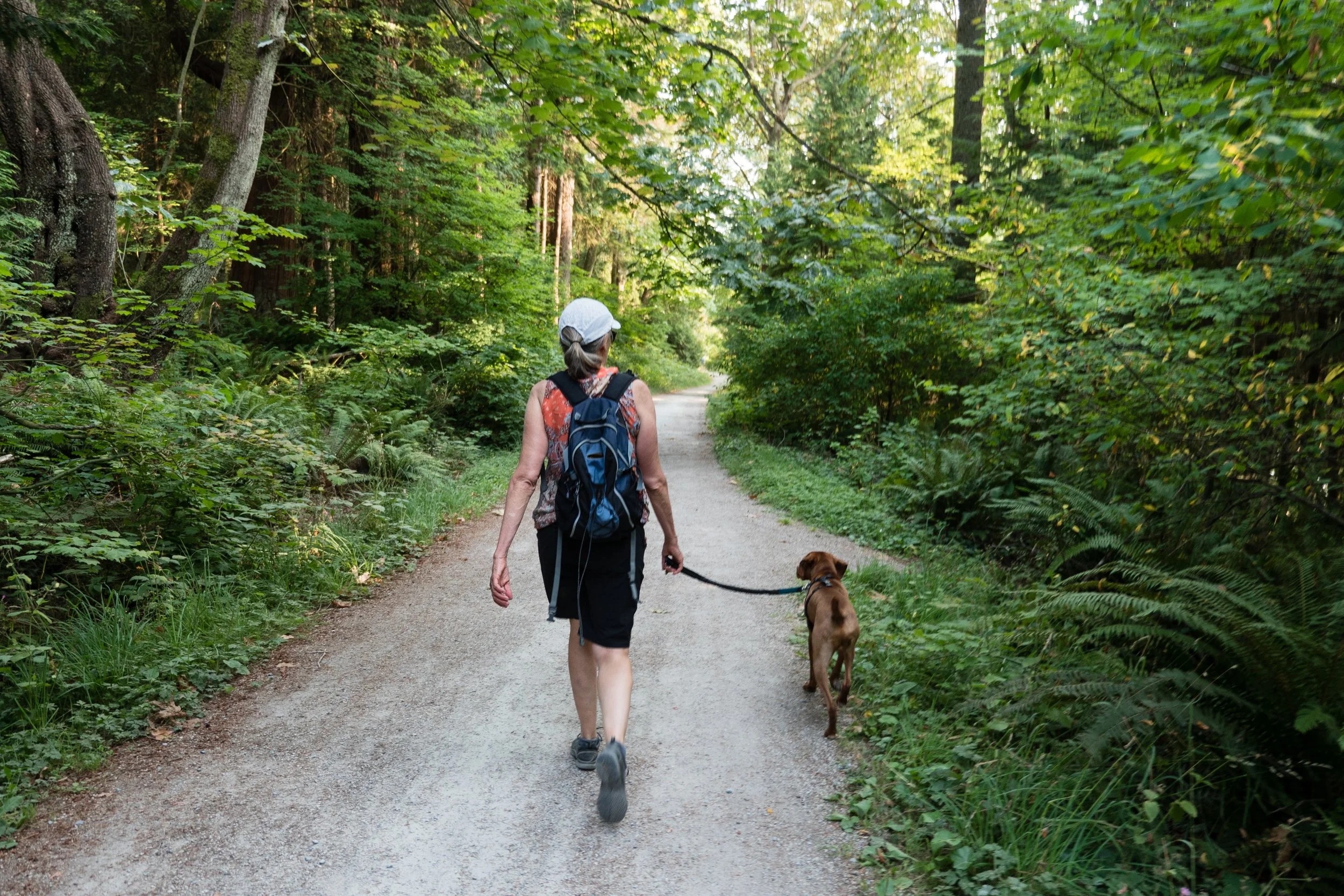The Importance of Picking Up After Your Dog: Protecting Our Local Ecosystems and Communities
When picking up after our dogs, it's easy to let things slide during the winter when it's dark outside. After all, who will see us not picking up that poo? However, other than just being a decent and thoughtful pet owner/human being, new research shows that Dog poo can significantly impact our local ecosystems and the environment if not picked up.
Dog Poo is bad for biodiversity.
A recent study published in the British Ecological Society journal, Ecological Solutions and Evidence revealed that a dog’s waste contains so much nitrogen and phosphorus it’s actually beyond the legal limits for fertilisation! It is a typical school of thought that dog walkers often mistakenly think that leaving a little poo behind makes more soil and that adding nutrients to nature reserves sounds beneficial as these can lead to increased plant growth. I would be lying if I haven’t often tried to justify this when dealing with upset tummies. However, as scientists rightly point out, many ecosystems are naturally low-nutrient environments and don't benefit from extra fertilisation. This is because plants that thrive in nutrient-rich soil, like honeysuckle, garlic mustard, and lesser celandine, can spread and overtake native plants that are important for the ecosystem. As responsible dog owners, we must be aware of the potential negative impacts our pets' waste can have on the spots we love walking our dogs in.
Dog poo flows downstream, polluting our waterways.
When it rains, or snows, dog faeces left behind are washed into storm drains, lakes, and streams. There, it rotates and decomposes, using oxygen in the water and releasing ammonia. This can negatively affect the water quality and the plants and animals living in those bodies of water. In combination with warm temperatures, the rotting faeces can use oxygen in the water and kill fish. The added nutrients in the faeces also encourage the growth of weeds and algae, disrupting the balance of plant and animal life in the water. This can even lead to severe algae blooms, including cyanobacteria, which has been known to kill dogs who have come into contact with contaminated water. The Environmental Protection Agency (EPA) estimates that just two days’ worth of waste from 100 dogs can create enough pollution to close a bay and all the watersheds within 20 miles. Dog owners must pick up and properly dispose of their pet's waste to prevent these negative impacts.
Anti-social.
Leaving dog poo on the ground can be unsightly and unpleasant for others to encounter. It can also create a health hazard, as dog faeces can contain harmful bacteria and parasites that can spread disease. This is especially concerning in public spaces where children and individuals with compromised immune systems may be present.
Additionally, dog poop can attract pests such as flies and create an unpleasant odour. This can make public spaces less enjoyable for others and deter people from using them altogether.
Furthermore, failing to pick up after your dog sends a message to others that you do not care about your community and the people who live in it. This lack of consideration for others can erode the sense of community and can make a neighbourhood or park feel less welcoming.
How is dog poo different to wild animal poo?
Leaving dog poo behind is justified because wild animals also poo. That is not a good argument. While wild animals may roam over larger areas and disperse their poop randomly, dogs typically walk in the same areas, leading to a concentrated amount of poo in a small space. Additionally, wild animals usually eat plants and animals from their territory and recycle their nutrients, whereas dogs are fed commercial food that can harm wild areas when left behind. In short, dog poo and wild animal poop are different and should not be treated as such.
So what can we do to help prevent these harmful effects?
The answer is simple: always pick up after your dog. It may not be the most glamorous task, but it's essential. Cleaning up after your dog can help protect our local ecosystems and environment and improve our communities.
Here are a few tips to help make picking up after your dog a little easier:
1: Always carry bags when you take your dog for a walk. This way, you'll be prepared to pick up any waste your dog leaves behind.
2: Dispose of the bags properly. Please don't leave them on the side of the road or in a trash can where they can be easily blown away. Instead, could you throw them away in a garbage bin or take them home with you to make sure they are correctly disposed of?
3: Be mindful of where you're walking your dog. Avoid areas with many plants and vegetation, as dog waste can harm these critical ecosystems.
By following these simple steps, we can all do our part to protect our local environments and make our communities better. So the next time you're out walking your dog, remember to pick up after them – not only because it's the right thing to do, but because it can significantly impact our local ecosystems and environment.


